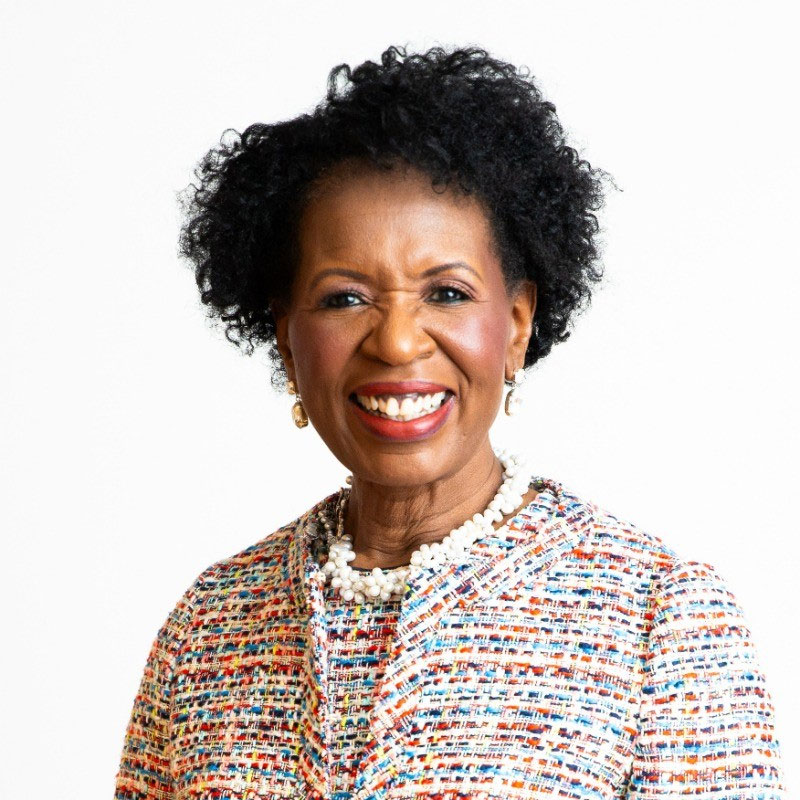Valerie Grant, CFA: Enhancing Nonprofit Governance

The core principles of corporate governance help U.S. public companies ensure compliance and accountability while maintaining a strong global profile. Many of these concepts can also be applied to nonprofit and charitable organizations, whose tax-exempt status comes with a responsibility to be accountable to the general public and the direct beneficiaries of their programs, products, and services.
Here are the principles Valerie Grant, CFA, believes will elevate a nonprofit entity’s ability to govern itself and its resources:
Transparency
Donors entrust nonprofits with significant resources, and nonprofits must be open and honest about their finances, policies, staff, board members, impact, and more. These disclosures build trust and help donors make informed decisions, similar to the “material” information that investors require for well-informed investment decisions.
Embodying transparency promotes trust with stakeholders at all levels, including donors, beneficiaries, and the public. Nonprofits can embrace this concept by regularly publishing audited financial statements, annual reports, and other relevant records. They should also openly communicate their goals and the outcomes of their efforts.
Accountability
Nonprofit leaders should answer to their stakeholders for their decisions and the repercussions of those choices. This includes being accountable for how they use funds, whether they adhere to their mission and the overall performance of the organization.
Decision-makers must establish clear roles and responsibilities for board members and executives. Conducting regular audits and evaluations will ensure compliance with legal and ethical standards.
For non-profit organizations, the non-distribution constraint prohibits the distribution of profits to employees or stakeholders, an important distinction relative to for-profit entities. This constraint is critical because it limits the ways in which companies could be seen as potentially wasteful or exploitative.

Fairness
Fairness involves treating all stakeholders equitably and making decisions that are just and impartial. Nonprofits can exhibit fairness by proactively considering the needs of all beneficiaries and addressing those without bias.
Integrating fairness into an entity’s ethos means developing policies that promote inclusivity and equity. The organization must ensure its decision-making process considers diverse perspectives and makes all voices feel heard.
Responsibility
Responsibility in governance refers to the duty of the board and management to make decisions that are in the best interests of the organization and its stakeholders. The distinction between nonprofit and for-profit responsibility has become increasingly blurred in recent years, as for-profits are more apt to consider the interests of society at large when making decisions.
Nonprofits should undertake regular strategic planning, operational planning, and enterprise risk assessments to ensure they have the resources and policies necessary to fulfill their mission.
Independence
According to the Harvard Law School Forum on Corporate Governance, board independence and attention “are of paramount importance in good nonprofit governance.”
Ensuring your entity’s board has the autonomy to consider relevant facts without conflicts of interest or undue interference from executive decision-makers will promote better transparency and accountability. Independence can be particularly challenging for founder-led organizations or those with charismatic leaders, but it remains a critical concept.
Implementing These Principles in Your Nonprofit
Integrating these principles into your organization will promote better and more ethical governance. Combine established principles set forth by entities like the Harvard Law School Forum on Corporate Governance with those aligned with your organization’s specific mission, scope of operations, and structure.
A hybrid approach sets the stage for more impactful governance while also supporting your nonprofit’s mission.
About Valerie Grant, CFA
Valerie Grant, CFA is a Managing Director and Equity Portfolio Manager at a global investment management firm. A thought leader in her industry, Valerie is a sought-after speaker and has been a guest lecturer and presenter at Harvard Law School, the Yale School of Management, and the CFA Institute. She also provides market commentary on CNBC, Bloomberg News, and other media outlets. She has served on numerous nonprofit boards, including Morehouse College, Jazz at Lincoln Center, the Harvard Business School Club of New York, and the Harvard Business School Alumni Board. Additionally, she has contributed to industry discourse on governance topics through her advisory roles with the International Financial Reporting Standards (IFRS) Foundation (formerly the Sustainability Accounting Standards Board) and the KPMG Audit Committee Institute. Valerie holds an MBA with high distinction from Harvard Business School and a B.S. in Economics from The Wharton School at the University of Pennsylvania.
Have you read?
Countries: Powerful Passports. Countries: Richest. Countries: Poorest. Countries: Happiest. Countries: Life Expectancy.
Bring the best of the CEOWORLD magazine's global journalism to audiences in the United States and around the world. - Add CEOWORLD magazine to your Google News feed.
Follow CEOWORLD magazine headlines on: Google News, LinkedIn, Twitter, and Facebook.
Copyright 2025 The CEOWORLD magazine. All rights reserved. This material (and any extract from it) must not be copied, redistributed or placed on any website, without CEOWORLD magazine' prior written consent. For media queries, please contact: info@ceoworld.biz








